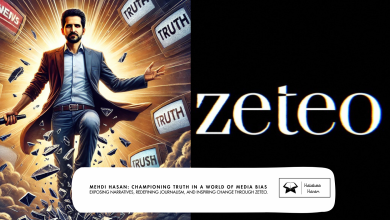Rajapaksa ally elected Lanka president

[ad_1]
Six-time prime minister Ranil Wickremesinghe was elected as crisis-wracked Sri Lanka’s new president by the country’s parliament yesterday, with the backing of the party of the ex-leader — who fled abroad after his palace was stormed by protesters.
Official results showed Wickremesinghe garnered 134 votes in the 225-member parliament, with his main opponent Dullas Alahapperuma getting 82 and leftist Anura Dissanayake just three, giving him an absolute majority on first preferences.
“Our country is facing massive challenges and we have to work on a new strategy to fulfil the aspirations of the people,” the 73-year-old leader said after his victory. “Now everyone must come together.”
He will be sworn in this morning and will appoint a new prime minister within the course of the day, officials from the President’s Office told Xinhua.
He is expected to name public administration minister Dinesh Gunawardena, 73, his schoolmate and a strong Rajapaksa loyalist, as the new prime minister.
Wickremesinghe takes charge of a bankrupt nation that is in bailout talks with the IMF, with its 22 million people enduring severe shortages of food, fuel and medicine.
But he was backed by the Rajapaksas’ SLPP party — still the largest in parliament — and is despised as a proxy for the former leader by the protesters who forced him from his palace after months of demonstrations over the unprecedented economic crisis.
On the streets, the mood was sombre. Soon after the election result was announced, a burst of chants broke out against Wickremesinghe. It lasted only a few minutes, before the small group of protesters left the steps of the secretariat.
But some vowed to keep up their protest against the 73-year-old leader.
Civil engineer Nuzly Hameem said he was “disappointed” by the result. “We expected more from our parliamentarians,” he told AFP.
The protests would “obviously” continue, he said, but added “We are burnt out. It’s been four months.”
“The reason why people came out against Gota(baya) was not a personal grudge. It was protesting for ideals and values he held,” said Buwanaka Perera, a 26-year-old protester.
“We see those same values, corruption and oppression in Ranil.”
Wickremesinghe has pledged to crack down hard if protesters take to the streets and hundreds of heavily armed troops and police stood guard outside the parliament, but there were no signs of demonstrators.
As acting president, Wickremesinghe extended a state of emergency that gives police and security forces sweeping powers, and last week ordered troops to evict protesters from state buildings they had occupied.
A court yesterday ordered the protesters to vacate their camp near the Presidential Secretariat and confine themselves only to an area designated as a protest site.
Opposition MP Dharmalingam Sithadthan said ahead of the vote that Wickremesinghe’s hardline stance against demonstrators had gone down well with MPs who had been at the receiving end of mob violence, describing him as the “law-and-order candidate”.
Wickremesinghe automatically became acting president when Rajapaksa resigned and political analyst Kusal Perera said he had “regained the acceptance of the urban middle classes by restoring some of the supplies like gas and he has already cleared government buildings showing his firmness”.
But he appears to be indebted to the Rajapaksas, a clan of four brothers who have dominated Sri Lankan politics for much of the last two decades, for his victory.
Gotabaya’s departure wounded the group after two of his brothers also quit their posts as premier and finance minister earlier this year.
But former president Mahinda Rajapaksa, the deposed Gotabaya’s elder brother and the head of the family, remained in the country, and party sources said he had pressed SLPP legislators to support Wickremesinghe.
[ad_2]
Source link

 For all latest news, follow The Daily Star’s Google News channel.
For all latest news, follow The Daily Star’s Google News channel. 


